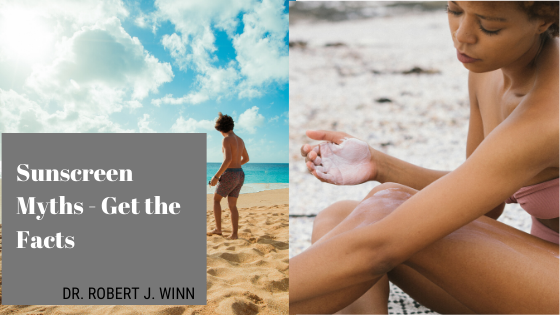Most people are aware of the dangers of the sun’s harmful rays. Too much exposure affects the skin in often drastic ways, and can even lead to skin cancer. To combat these dangers, people liberally apply sunscreen and go on with their activities. Misconceptions about sunscreen are common, but proper sunscreen use is essential.
Cloudy Days
Some people think that if the sun is not visible and clouds take over the sky, sunscreen is pointless. Actually, even on the most overcast and rainy days, UV rays can hit the body. Any exposed skin is vulnerable.
Skin Tone
Another common myth is that a person’s skin tone determines if sunscreen is needed. The belief is that darker tones do not need as much protection or any protection at all. In truth, all people, regardless of skin tone, can suffer from UV ray effects.
One Application
There are quite a few people who will liberally apply sunscreen before going out and spend the whole day outdoors without reapplying the sunscreen periodically. Some sunscreens are made to last longer than others and do not require additional application every two or four hours, but they still have an effective time limit and will eventually need to be reapplied. The instructions on the container can determine when sunscreen should be reapplied.
No Expiration
Despite common belief, sunscreens do expire. The active ingredients that provide protection do have a limit on how long they are effective. Over time, these ingredients do break down and will not protect the skin at all.
All the Same
Not all sunscreens are created equal. They are made to block UVA, UVB, or both. They have different active ingredients, and there are some designed with water or sweat resistance and higher SPF levels for children and infants. Sun Protection Factor, or SPF, will also differ. SPF determines the level of UVB protection. Higher SPFs provide less protection than lower SPFs. Most experts recommend using an SPF of 30 or lower.
Despite some common myths, sunscreen usage is beneficial. Sunscreen provides essential protection against the harmful effects of the sun’s UV rays, from reducing very painful sunburn and sun poisoning to safeguarding against skin cancer. It should be applied liberally and frequently for the best results.


